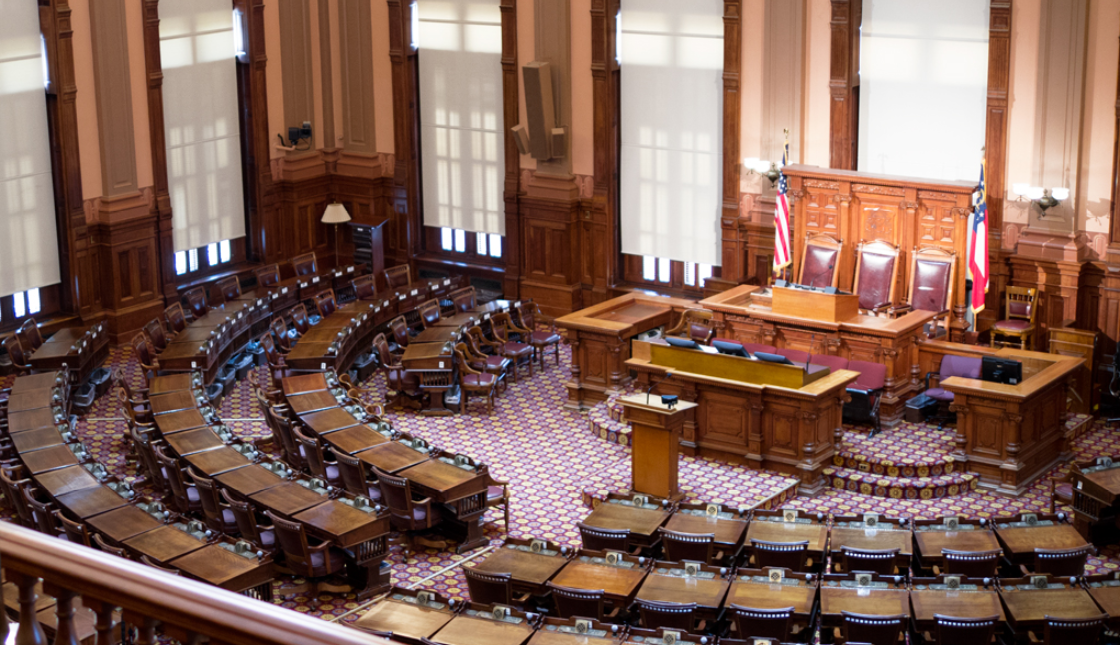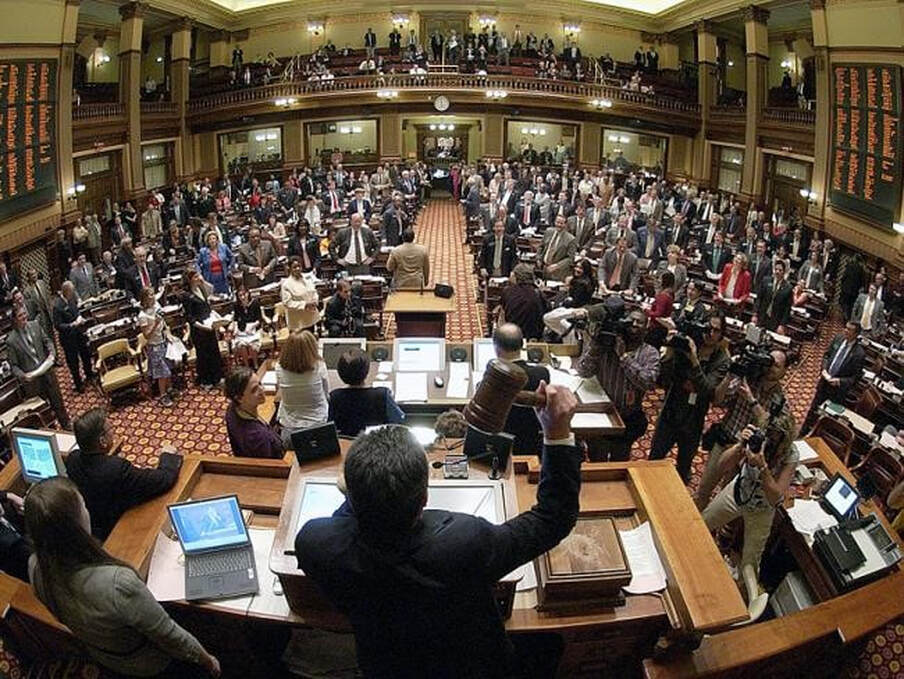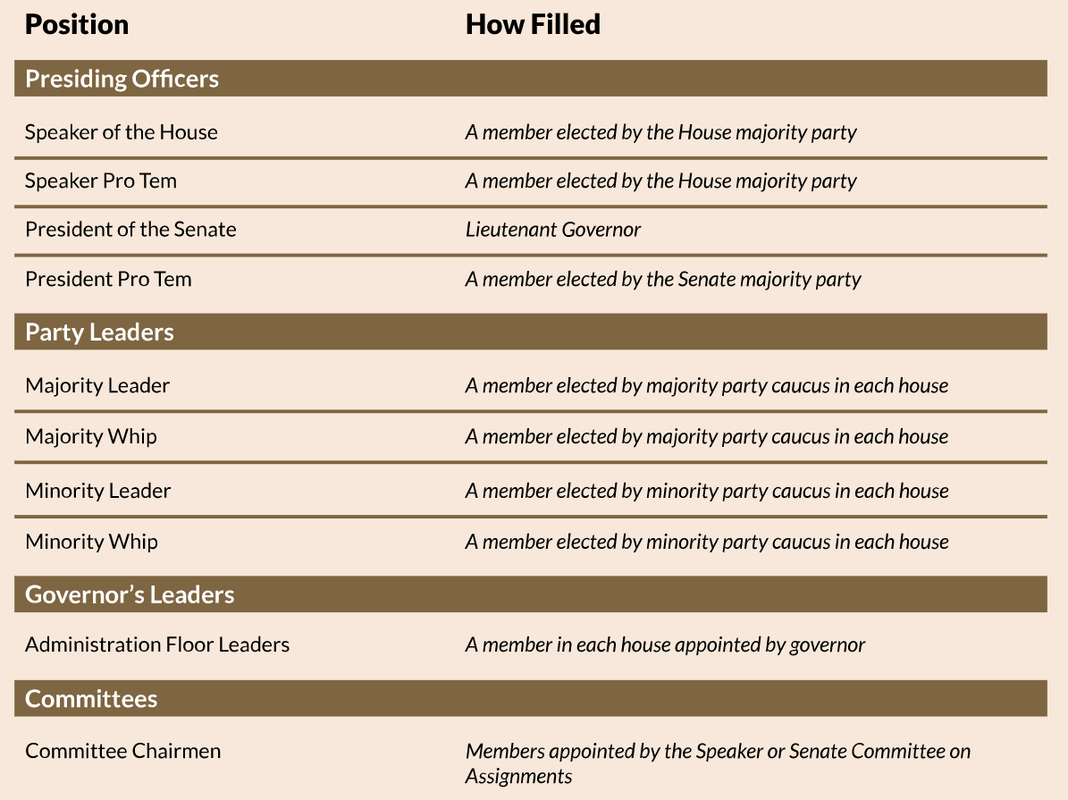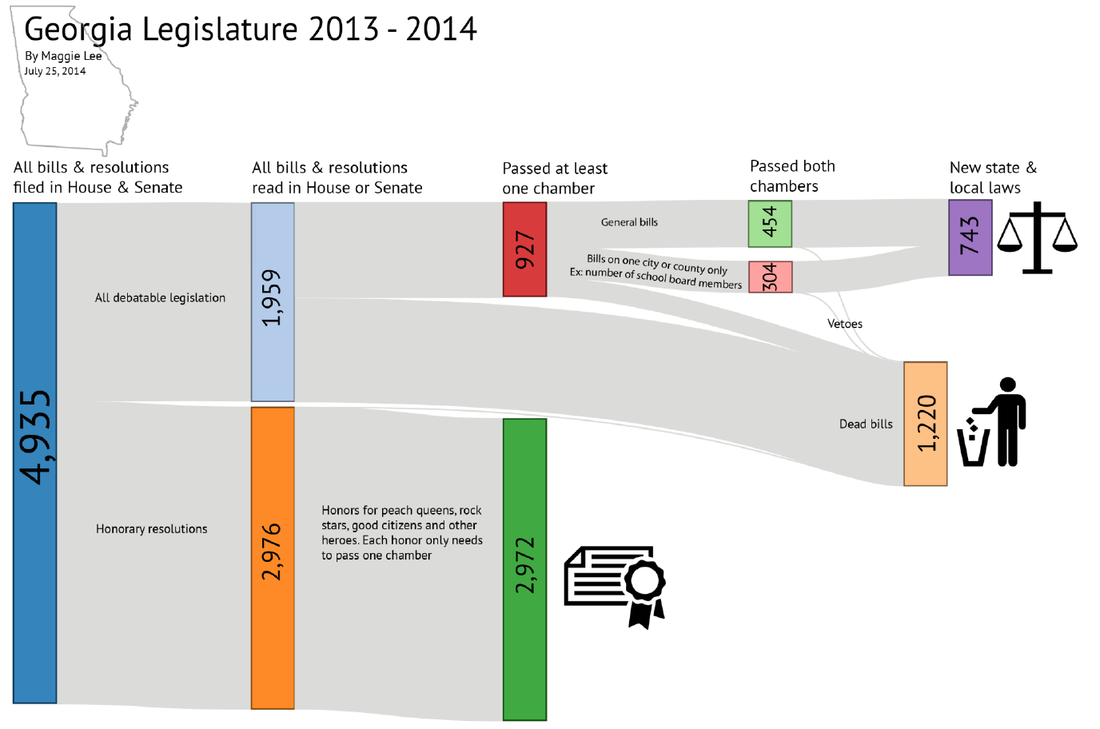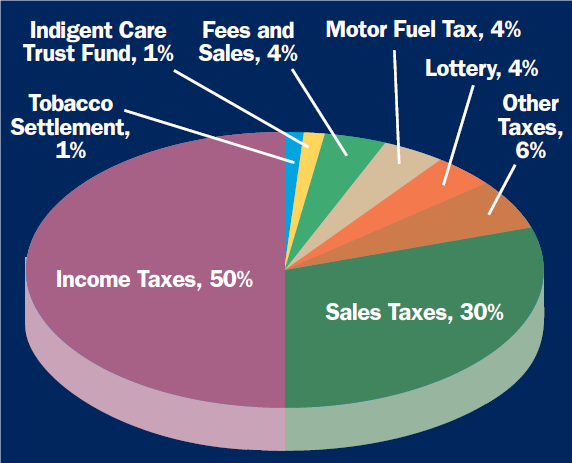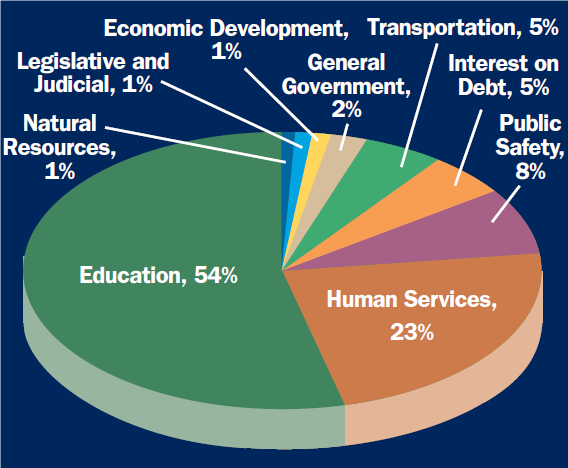The General Assembly- Georgia's Legislative Branch
S8CG2- Analyze the role of the legislative branch in Georgia.
A. Explain the qualifications for members of the General Assembly and its role as the lawmaking body of Georgia.
B. Describe the purpose of the committee system within the Georgia General Assembly.
C. Explain the process for making a law in Georgia.
D. Describe how state government is funded and how spending decisions are made.
A. Explain the qualifications for members of the General Assembly and its role as the lawmaking body of Georgia.
B. Describe the purpose of the committee system within the Georgia General Assembly.
C. Explain the process for making a law in Georgia.
D. Describe how state government is funded and how spending decisions are made.
Georgia’s legislative branch is similar to the United States Congress in that it is bicameral, or has two chambers or houses. Georgia’s legislative branch is called the General Assembly. Georgia has had a two house legislature since 1777, when the first state constitution was created. Today those two houses are called the House of Representatives (180 members) and the Senate (56 members). The purpose of the General Assembly is to make laws.
Leadership of the General Assembly
The lieutenant governor presides over the senate. Members of the house of representatives elect a speaker as their presiding officer. The speaker, like the lieutenant governor, appoints committees and their chairpersons and assigns bills to those committees.
The lieutenant governor does not have a vote in the senate, but the speaker of the house votes when it is necessary to break a tie.
The lieutenant governor does not have a vote in the senate, but the speaker of the house votes when it is necessary to break a tie.
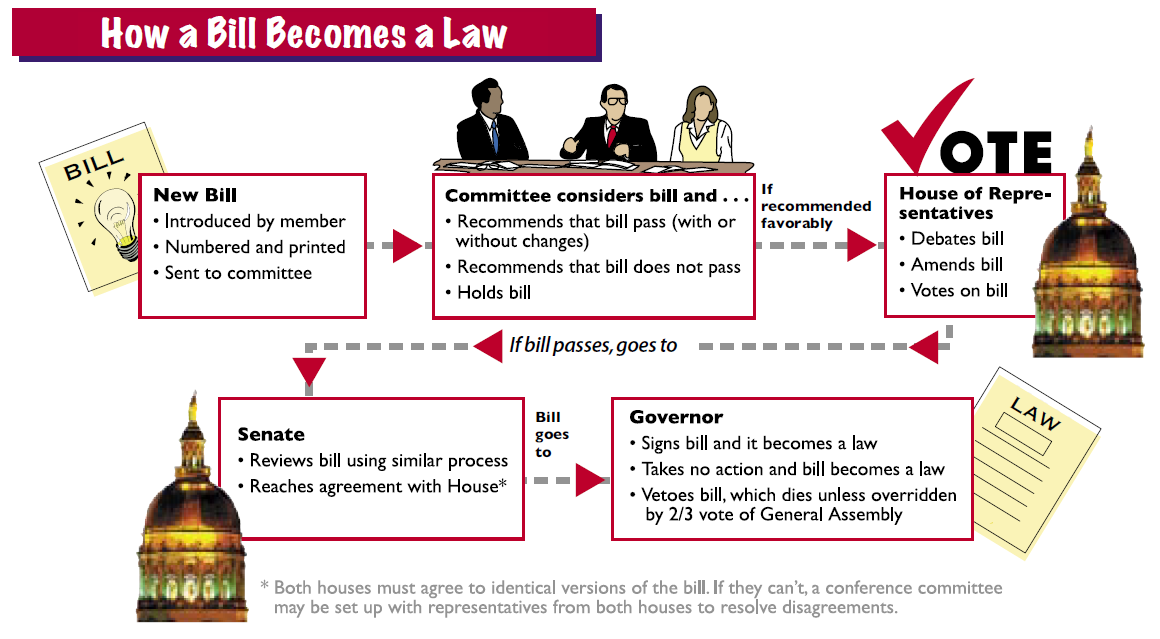
Any citizen may suggest an idea for a law, and any senator or representative can propose a bill for consideration. All bills that affect how the state raises or spends money must start in the House of Representatives. Bills about anything else may begin in either house.
****The Georgia General Assembly can pass laws on any matter not denied it by the U.S. Constitution.
****The Georgia General Assembly can pass laws on any matter not denied it by the U.S. Constitution.
Committee System
All laws start as an idea from citizens. When the idea is formally written by a legislator it becomes a bill. The bill is read aloud to the members of the House or Senate during the legislative session. If the chambers decide that there is enough interest in the bill, it is sent to a group of representatives who are on a committee. These committees study and discuss the bill and decide if it should continue in the legislative process. This is where most of the work is done in the legislature. There are three main types of committees in the General Assembly:
*Standing — more than 30 permanent committees that meet during the legislative session to discuss and study the major subject areas of legislation Examples: Education, Transportation
**Interim — members meet and work between sessions on matters that require in-depth study Examples: Finance, Energy Sources
***Conference/Joint — members from both houses meet to discuss 2 versions of the same bill Examples: Revenue, Tax Reform
Members of the Georgia General Assembly may serve on several committees. Committee chairpersons decide when their committees will meet. They choose the order in which assigned bills will be discussed and when the bills will be voted on.
The committee assigned to handle the bill can do several things:
(a) It can hold the bill and not release it to the house;
(b) It can vote the bill out of committee and recommend that it be passed;
(c) It can vote the bill out of committee and recommend that it not be passed;
(d) It can make changes in the bill and vote the new version out for consideration by the house; and
(e) in the house only, it can vote the bill out of committee with no recommendation. If a bill is not voted out of committee, it is “killed” unless the full house votes to take the bill from the committee and assign it to another one.
*Standing — more than 30 permanent committees that meet during the legislative session to discuss and study the major subject areas of legislation Examples: Education, Transportation
**Interim — members meet and work between sessions on matters that require in-depth study Examples: Finance, Energy Sources
***Conference/Joint — members from both houses meet to discuss 2 versions of the same bill Examples: Revenue, Tax Reform
Members of the Georgia General Assembly may serve on several committees. Committee chairpersons decide when their committees will meet. They choose the order in which assigned bills will be discussed and when the bills will be voted on.
The committee assigned to handle the bill can do several things:
(a) It can hold the bill and not release it to the house;
(b) It can vote the bill out of committee and recommend that it be passed;
(c) It can vote the bill out of committee and recommend that it not be passed;
(d) It can make changes in the bill and vote the new version out for consideration by the house; and
(e) in the house only, it can vote the bill out of committee with no recommendation. If a bill is not voted out of committee, it is “killed” unless the full house votes to take the bill from the committee and assign it to another one.
Revenue and Expenditures
One very important concern of the legislature in to make certain that the state has enough money to operate. The govenment needs revenue to fund everything from public school classrooms to highway construction and maintence. Most of Georgia's revenue comes from taxes. Taxes ane levied on income, property, and most purchased items.
Georgia's constitution requires the state to maintain a balanced budget; that is, the government cannot spend more than it takes in. If income and sales tax revenues fall short of estimated amounts, the governor must adjust spending in executive agencies and program areas. The success or failure of the state to generate adequate revenue in a healthy economy directly affects the quality of services offered to the people of Georgia.
Georgia's constitution requires the state to maintain a balanced budget; that is, the government cannot spend more than it takes in. If income and sales tax revenues fall short of estimated amounts, the governor must adjust spending in executive agencies and program areas. The success or failure of the state to generate adequate revenue in a healthy economy directly affects the quality of services offered to the people of Georgia.
